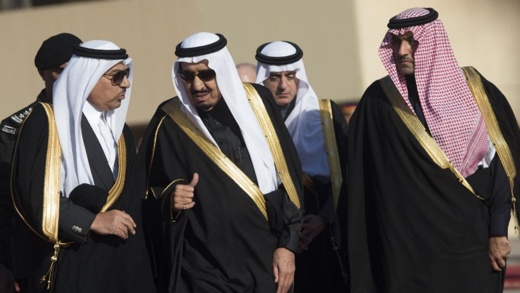Political circles in Iran expected Saudi Arabia to experience an unprecedented crisis after the passing of King Abdullah, but everything is apparently calm in the kingdom, although such stability might be short-lived.
Amir Mousavi, the head of the Center for Strategic Studies and an expert in Saudi affairs, has said in an interview with Khabaronline that the group which has assumed power in Riyadh is radical and the developments that unfolded following the death of King Abdullah have pushed the kingdom’s moderate groups to the sidelines.
The following is the translation of what Mousavi said in the interview on February 4 about the political prospects of Saudi Arabia after the death of King Abdullah:
Do you think Saudi policies vis-à-vis Iran will change after the death of King Abdullah?
To answer that question, the circumstances of King Abdullah’s death should be examined first. Was his death made public right after he passed away? Or did it happen well before the announcement? I think Abdullah had passed away several weeks earlier and the delay in the announcement of his death was simply meant to allow time for preparations for the post-Abdullah period.
Are you saying that Saudi officials intentionally held up the announcement of Abdullah’s death?
Yes, that’s right. If you take a look at Prince Mujtahid’s tweets, you see that he had made mention of this. He is living in Europe. He usually discloses Saudi secrets in his tweets.
Do you think those who were held up the announcement have achieved their goals and implemented the intended changes?
Prince Mutaib bin Abdullah was one of the individuals who tried to have a role in the new order, but he was denied any such role. He spent several weeks in the US and held consultations on new developments in the country, but apparently he failed in this regard.
I think those who have risen to power today have managed to cement their position and marginalize their opponents to some extent.
Let’s go back to the first question. Will Saudi policies toward Iran change?
The change, if it ever takes place, seems unlikely to be positive, because those who have seized power in Saudi Arabia today come from the ranks of the country’s radical groups. Unlike the group led by Abdullah which was somehow moderate, Salman and his inner circle belong to the country’s hardline political groups. That’s why we should not expect positive change in Saudi ties with Iran.
Will the power struggle come to a head in the current situation?
Perhaps, it’s too early to pass on judgment on that. We should wait and see where the political developments and rivalry which is unfolding and growing in the Al-Saud family will lead to.
Currently the Sudairi Seven have taken the upper hand in the kingdom’s political equation. Since the sons of Abdullah and those from other moderate groups have been isolated, whether or not Mutaib and like-minded princes can bring about change in defiance of Salman remains to be seen.
One key decision of Salman was the naming of a deputy crown prince. It was the first step in the transfer of power from the sons of Abdulaziz to the third generation [of princes]. Given that the king has picked his nominee from the Sudairi family, do you think other princes would respect his pick?
That is a good question. One of the most serious challenges Salman and the Saudi government are facing is the transfer of power to the third generation [of princes]. As you know, based on the will of Abdulaziz, the kings should be selected from among his descendants; as long as his sons are alive, delegation of authority to others is out of the question.
Salman has picked both his own successor and the deputy crown prince [second-in-line to the Saudi throne] who is the successor of his successor. This was an unusual trend King Abdullah set after two of his crown princes died before him.
Now Salman is following a similar trend, but the only difference here is that he has involved the third generation. Since Salman and Nayef are not in perfect health, the kingdom does not face a bright future.
We need to wait and see what will become of the infighting in the Al-Saud family after the death of King Salman and his Crown Prince Muqrin. That process seems unlikely to be calm and friendly.
